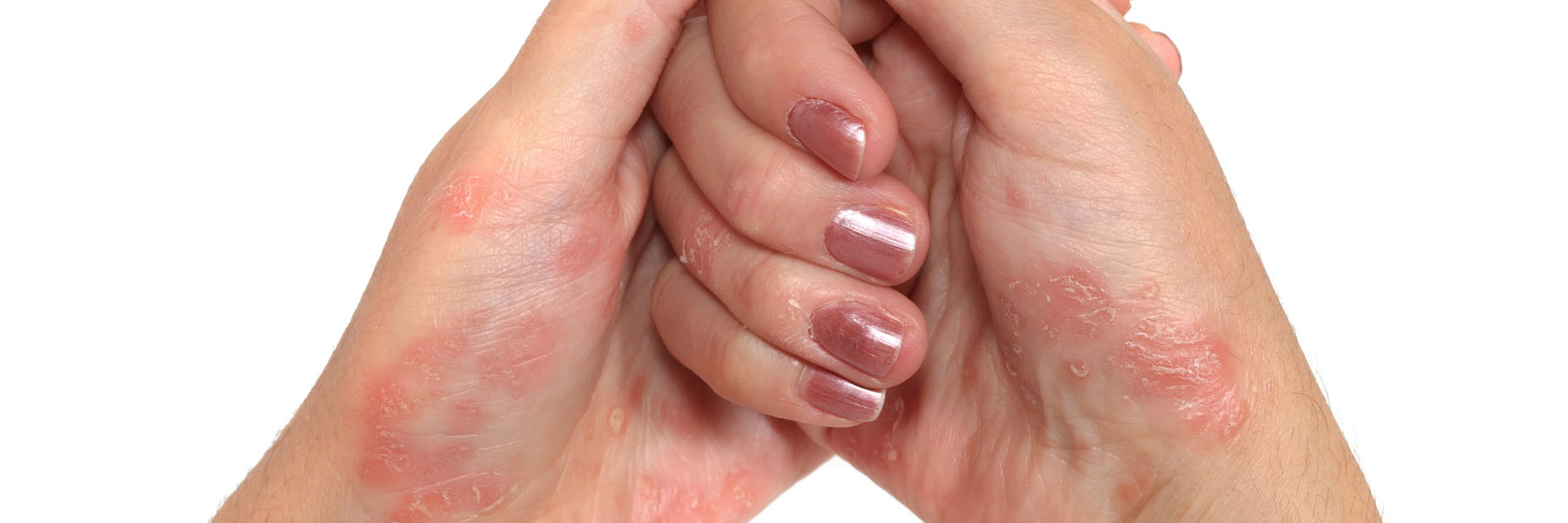Psoriasis: Should You Shake Hands?

Psoriasis is an autoimmune condition, where a person’s immune system is mistakenly attacking her or his healthy cells. The most common kind, plaque psoriasis, results in painful redness, itching, scaling, bleeding, flaking, and well-defined silvery lesions.
According to the National Psoriasis Foundation, two to three percent of us will develop this skin condition in our lifetime. People who live with psoriasis often face social, professional, and romantic rejection and isolation. This can lead to embarrassment, depression, inactivity, and low self-esteem.
“The skin is the largest organ of the body,” says Dr. Paolo Romanelli, a dermatologist with the University of Miami Health System who specializes in psoriatic disease. “When 60 to 70% of your body is covered with lesions, everyone can see it. The appearance of these lesions, which are called plaques, is the cause of the social stigma.
“People who don’t know better assume it’s contagious or caused by poor hygiene. Some of my patients feel like they can’t wear shorts or short sleeves, even at the beach. One patient wears socks 24 hours a day to hide her feet from view.
Some types of psoriasis cover the entire body. One type causes cracking and bleeding on the hands and feet, making it difficult to shake hands, work, or walk comfortably. Other types affect the genitals, which can negatively impact patients’ sex lives.”
Easing your physical symptoms
There isn’t a cure for psoriasis. However, people can reduce the appearance of their physical symptoms.
- Maintain a healthy weight — Weight loss (even through bariatric surgery) can dramatically help overweight and obese patients manage their psoriasis.
- Lifestyle changes — Avoid stress, alcohol, smoking, exposure to cold/dry weather, and trauma to the skin.
- Changes to your diet — Add fish oil supplements or fatty fish to your diet.
- Get treatment for any other medical conditions — These include heart disease, diabetes, dyslipidemia, and high blood pressure.
- Ask for help — Consider participating in psychological counseling, social/support groups, and lectures designed for patients and their families, available through the National Psoriasis Foundation.
“With modern medical treatments and what we now understand about what can trigger a flare-up, we can tremendously improve the appearance of psoriasis,” Dr. Romanelli said. “I saw patients today whose skin is now extremely clear. They’re very happy with the results. Their lives have completely changed, and they can now do the activities they were afraid to do when their condition was flaring up.”
Successful treatments can bring relief
“Many psoriasis patients are devastated and miserable,” Dr. Romanelli says. “But, with successful treatment, they can feel significant relief from the visible symptoms, physical pain, and emotional distress of psoriasis.”
“The best advice I can give is to see a dermatologist with expertise in this condition,” he says. “We have fantastic treatments now, like injectable biologics and phototherapy (light therapy), in addition to more traditional treatments like topical creams/ointments. So, this is an optimistic time to have this condition treated.”
Dana Kantrowitz is a contributing writer for UMiami Health News.
Tags: dermatology, Dr. Paolo Romanelli, psoriasis
